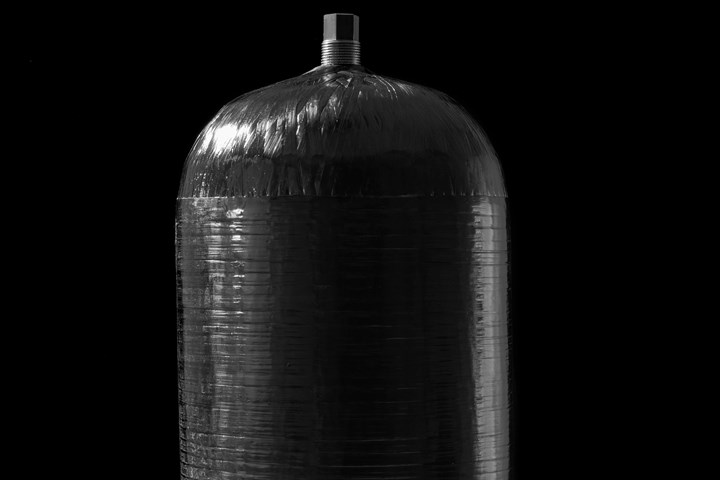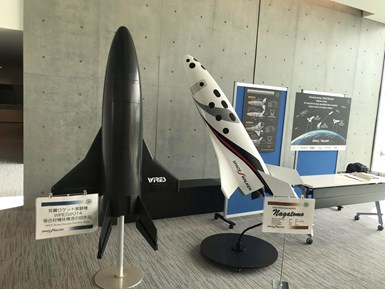University startup is developing composite storage vessels
Through strategic partnerships, Space Walker is developing a Type IV composite high-pressure gas storage vessel for use in hydrogen fuel cell drones.

High-pressure composite vessel. Photo Credit: Space Walker
Space Walker Inc. (Minato, Tokyo) is a university startup conducting research and development of winged reusable suborbital space planes. According to the company, it envisions sustainable commercial space transportation to be as familiar and accessible as commercial air travel is today.
In July 2021, Space Walker merged with the ComRed Corp. (Gotsu City, Japan), a developer and manufacturer of Type IV and Type V carbon fiber-reinforced polymer (CFRP) composite vessels, which are fully wrapped composite vessels with a resin liner and liner-free fully composite wrapped, respectively. ComRed also manufactures other products that support the promotion of hydrogen.
In addition to the merger with ComRed, Space Walker also recently entered a strategic partnership with Nissei (Sakaki, Nagano, Japan) to develop a Type IV composite high-pressure gas storage vessel for use in hydrogen fuel cell drones. The alliance between the two companies will effectively transfer technology that was originally intended for space development for applications closer to the Earth’s surface, and will advance the use of hydrogen fuel cell drones for disaster response and other applications.
Lastly, Space Walker has extended previously established relationships with Air Water (Osaka, Japan) and Air Water Hokkaido (Hokkaido, Japan); the three companies now plan to launch a suborbital space plane in Taiki, Hokkaido. The companies also intend to develop technologies aimed toward carbon-neutrality.
Air Water and Air Water Hokkaido have reportedly developed space rockets since the 1970s with university research and development of supply facilities. Together with Space Walker, the companies will jointly develop next-generation composite high-pressure vessels, which will be used in transportation equipment such as hydrogen trailers and curdles, as well as in hydrogen stations. The companies expect demand for hydrogen to grow for energy applications.
Related Content
-
Zeiss, Imperial College London summer school enhances materials, sustainability learning
Twenty-four next-generation students attended the Imperial College London this August to advance their scientific knowledge, with workshops, lectures, activities and a composites competition.
-
The Native Lab launches composites course training membership plan
Courses that touch on the fundamentals of composite materials, design, analysis and more are available for individuals and companies alike through TNL’s online platform.
-
NASA names university teams for aeronautics research challenges
As part of the agency’s University Leadership Initiative, three multidisciplinary teams will address topics related to growth in AAM, while a fourth examines electricity generation for future airliners.

















